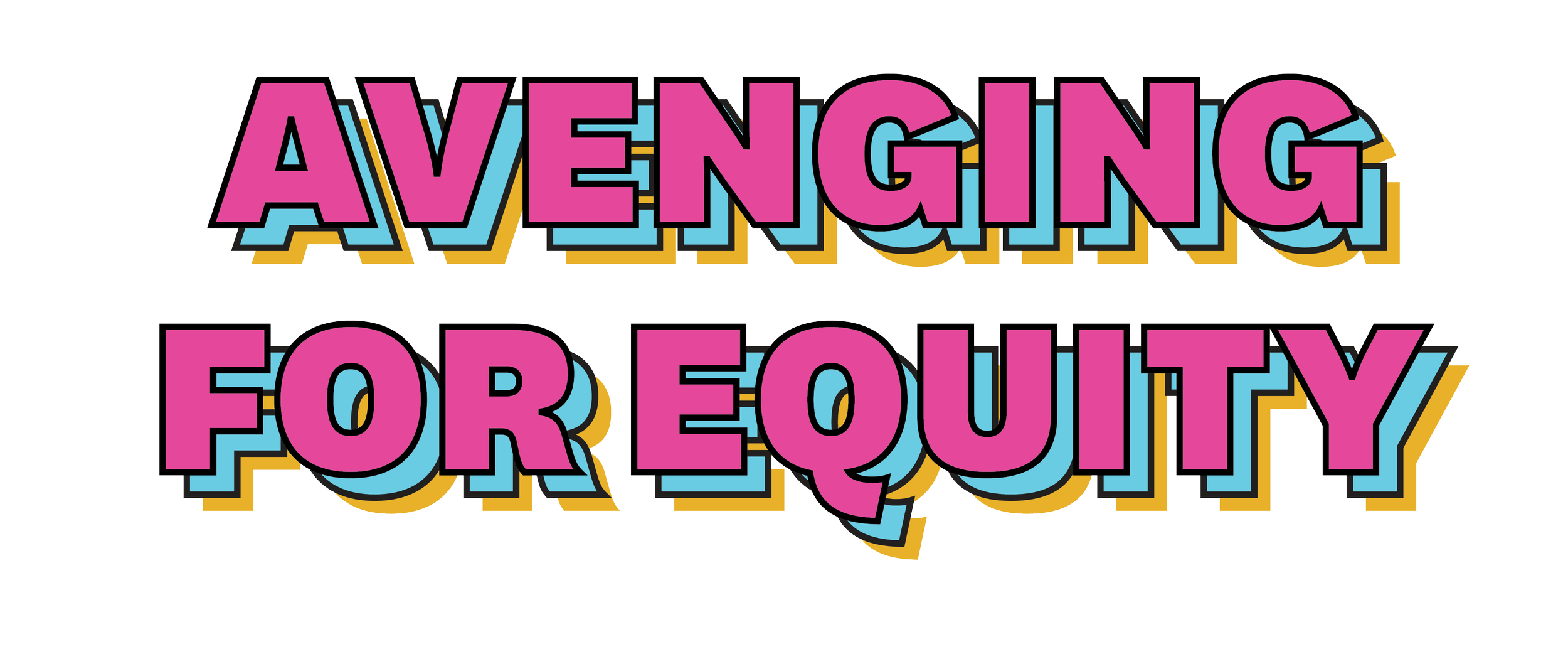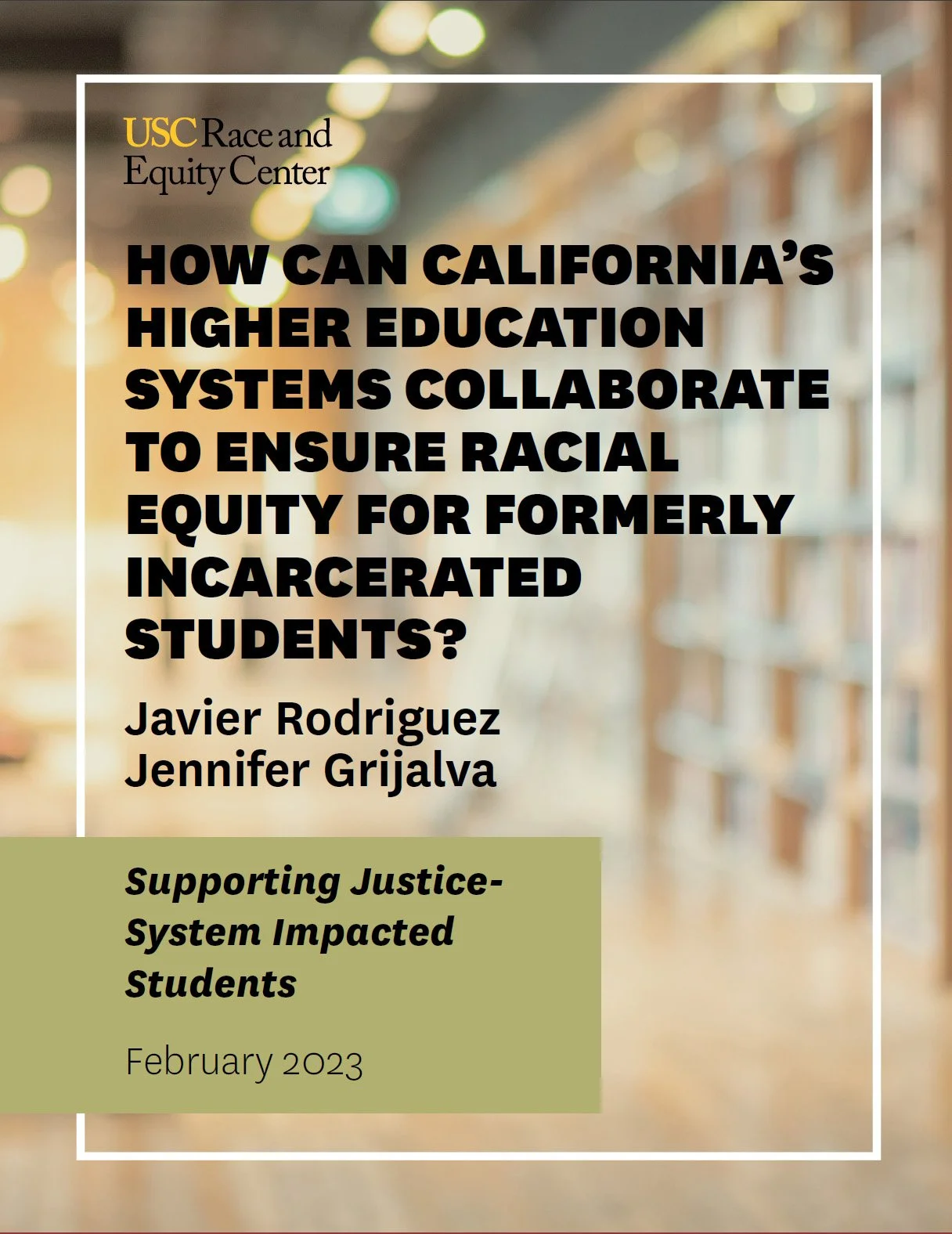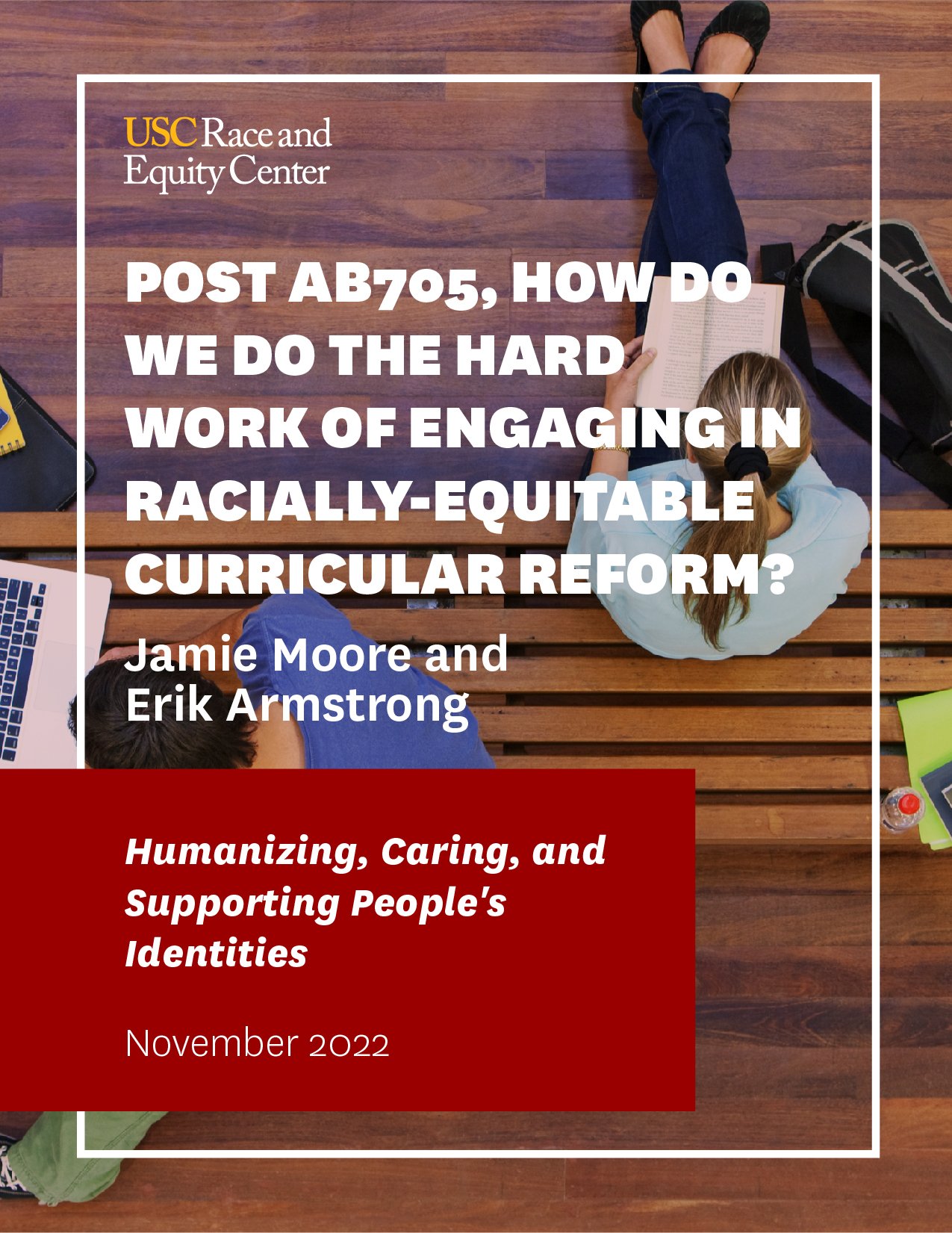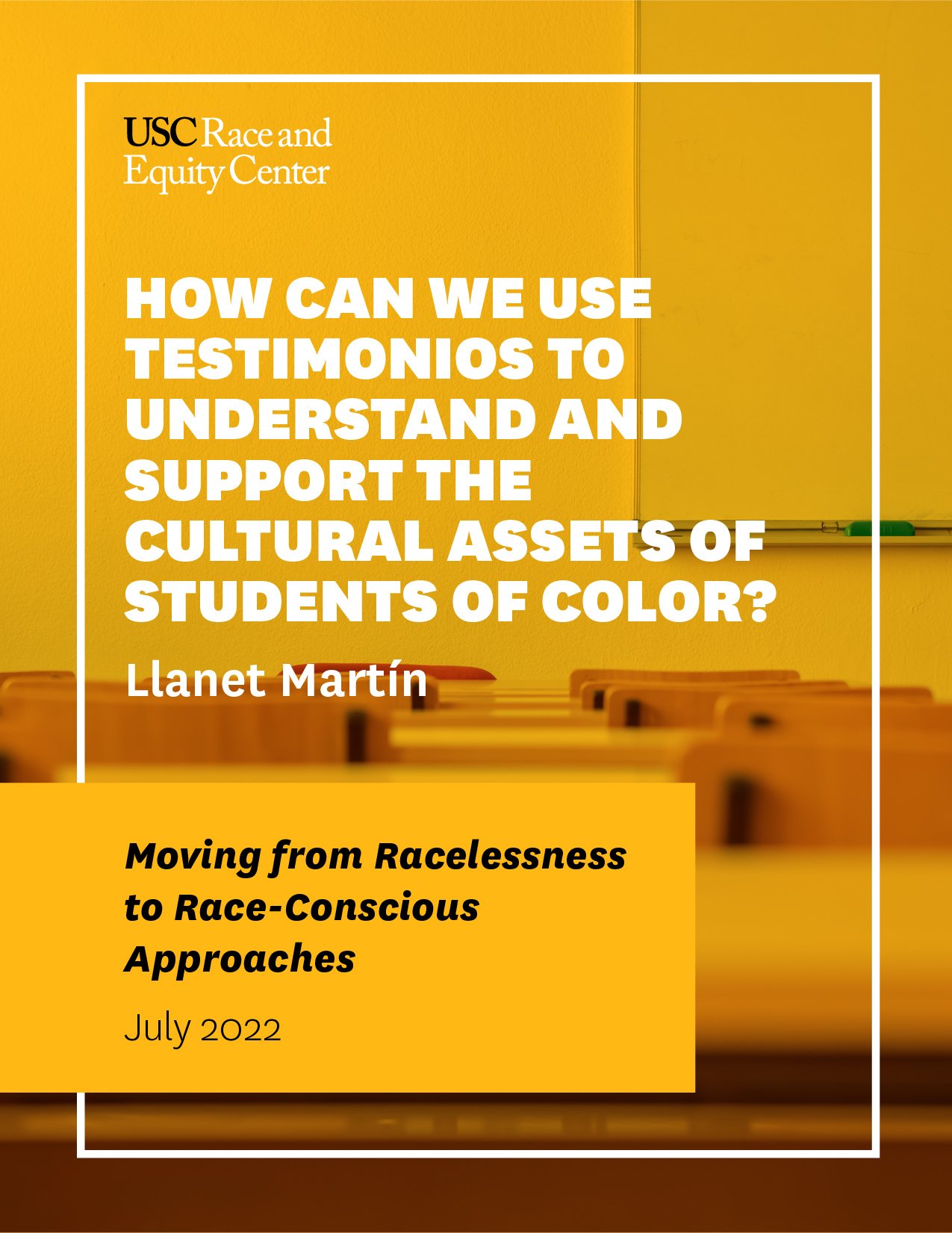
SOLUTIONS BRIEFS FOR CALIFORNIA COMMUNITY COLLEGES
A brief series offering practical solutions to pressing racial equity problems and everyday challenges with succinct recommendations focused on practice.

Race-Conscious Leaders Transforming California Community College Pathways
This special issue in our Solutions Briefs series, co-branded with the Equity Avengers, illustrates powerful stories that show race-conscious leadership so readers can be inspired by the different paths people can take to become equity champions, no matter their roles or identities. The entire issue is published in graphic novel format with artwork from BRIDGEGOOD, formerly Oakland Digital Arts & Literacy Center, which helps students build skills to secure creative design careers, and all of the artists in this issue are California community college students. The briefs feature authors from the Racial Equity Commission for the California Community Colleges, a group of leaders in the system who over two years have reimagined community college to remove longstanding barriers for students of color. The 30-member Commission includes students, faculty, counselors, directors, deans, vice presidents/vice chancellors, and college presidents/chancellors.
Issue Theme:
Supporting Justice System-Impacted Students
While we often lead with the best intentions to implement sweeping reforms meant to reduce racial equity gaps, blanket policies for all students of color can sometimes mask the struggles of students who face multiple marginalizations. In order to reduce racial equity gaps we need to support the different ways students are multiply marginalized, including communities of color who are disproportionately harmed by the carceral and justice systems, especially in California, which has among the highest incarceration rates in the country. Evidence repeatedly shows that access and completion of higher education among formerly incarcerated people is one of the strongest predictors of decreased recidivism, social mobility, and greater health outcomes. Despite nearly 100,000 people being released from prison each year, California still lags in offering programs to support them in reaching their dreams after serving time. This theme focuses on how California’s public higher education systems can ensure current and formerly incarcerated individuals are treated humanistically and have equitable opportunities to succeed. Authors include program directors, statewide advocacy leaders, faculty, and scholars of system-impacted students. Briefs in this series explore models of existing programs, share external resources and funding opportunities to advance programs, and provide practical recommendations on supporting justice system-impacted students regardless of institutional capacity.
Brief #1
How can California community college reentry programs be more responsive to justice-system impacted students?
Brief #2
How can colleges build and expand partnerships with county jails?
Brief #3
How can California community colleges holistically support system-impacted students?
Brief #4
How can leaders foster a campus ethos towards institutional support programs and services for systems-impacted students?
Brief #5
How do we encourage formerly incarcerated individuals to pursue higher education as opposed to being directed into customary labor markets?
Brief #6
How can California’s higher education systems collaborate to ensure racial equity for formerly incarcerated students?
Brief #7
How can we develop the full potential of justice system-impacted students to transfer from community college to four-year universities?
Issue Theme:
Humanizing, Caring, and Supporting People’s Identities
This theme focuses on how we as educators can center students’ identities by deeply understanding, for instance, what it means to be an undocumented student or a justice system-impacted student. Strategies to serve student identities are highlighted throughout, and specific attention is placed on course curriculum as a powerful tool to serve and center different student identities. Faculty in this series describe how they have diversified their curriculum, including opportunities they leveraged and the challenges they faced, to transform their practice under AB 705 to show care for students. Authors also describe how to look inward as faculty members to reassess practices that while well-intended, may not be in service specifically to students of color. This series also includes authors who are student advocates, counselors and researchers deeply committed to humanizing students’ experiences in college. The authors in this series emphasize that to show care, affirm, and humanize students’ identities, educators must ask themselves deep questions about their institutions, their practices, and themselves as educators.
What is meant by ‘humanizing’? Colleges often invalidate the identities of students of color, making them feel like they do not belong and are less capable of succeeding by expecting students to leave behind their various identities to assimilate into predominately white norms and race-neutral academic cultures. The silence surrounding race gives students the impression that these issues have no place in classrooms or campus spaces. This theme provides tools for educators to draw relevant connections between being a successful student that still holds firmly to their cultural, ethnic identities.
Brief #1
How can we transform the educational experience of undocumented students?
Brief #2
How can we reduce racial equity gaps when at a minority-serving institution?
Brief #3
Post AB705, how do we do the hard work of engaging in racially-equitable curricular reform?
Brief #4
How can we empower students to contribute to and grow a field of study, rather than simply expecting them to reinforce the status quo?
Brief #5
Who are formerly incarcerated students?
Issue Theme:
Moving from Racelessness to Race-Conscious Approaches
This theme focuses on how colleges can move from raceless to race-conscious approaches in policies, practices and reforms in the California Community Colleges. In spite of Proposition 209, this brief theme calls on system leaders to reflect on practices that are not only legally permissible but morally necessary to equitably serve students of color in the system. Racial equity questions were submitted by community college employees, and each brief is written in response to one of these questions.
Brief #1
How can we ensure that guided pathways and racial equity efforts are seamlessly integrated?
Brief #2
How can we use testimonios to understand and support the cultural assets of students of color?
Brief #3
How can the Vision for Success Serve as a Tool for Racial Equity?
Brief #4
How can we move away from raceless policies and practices in California Community Colleges?
Brief #5
How can we engage our campus colleagues in critical dialogue around race and equity?























